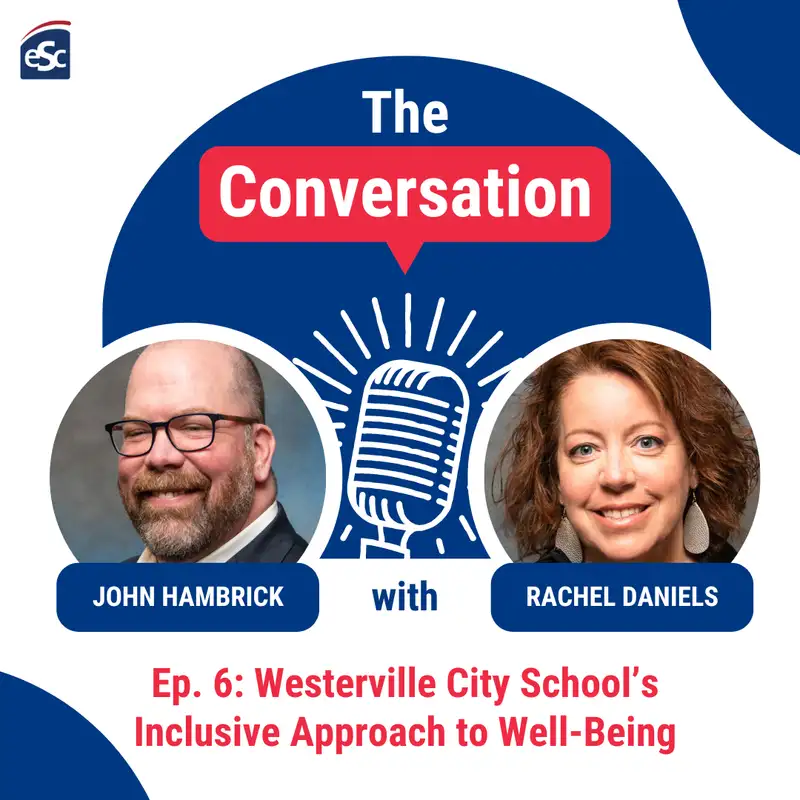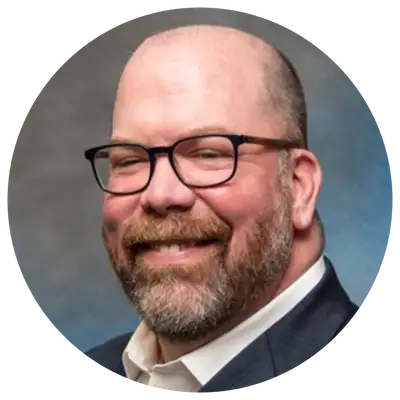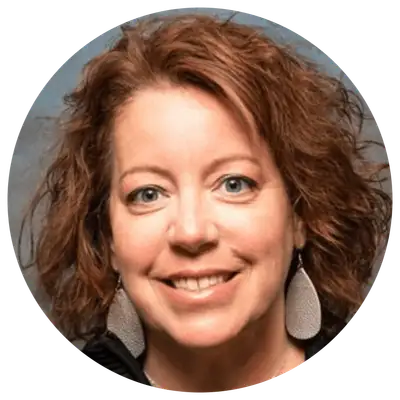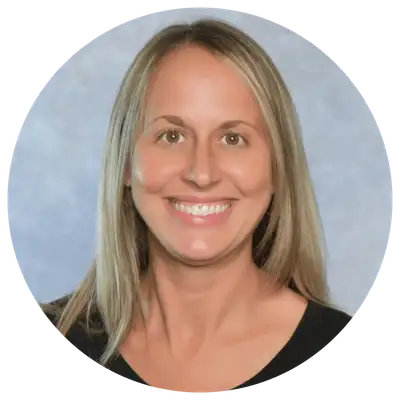
Westerville City School’s Inclusive Approach to Well-Being
Tami Cole-Santa:
... I think 15 years ago, there was a lot of adult voices, and maybe not a collective stakeholder voice. So making sure that all voices, especially students, were at the table.
Speaker 1:
That was Tami Cole-Santa, executive director of Student Services at Westerville City Schools. She's joined by Jessie Martin, director of Student Well-being. On this episode of the conversation, John and Rachel will learn about their inclusive approach to student and teacher well-being. Let's dive in.
John Hambrick:
Hello, and welcome to the conversation as we bring you intriguing discussion on education, workforce, and current events. I'm John Hambrick, and I'm here alongside my esteemed colleague, Rachel Daniels, as we bring you this conversation. We're so fortunate to have two practitioners from Westerville City Schools, Tami Cole-Santa, the executive director of Student Services, and Jessie Martin, director of Student Well-being with Westerville City Schools.
Ladies, welcome to the conversation. Tami, I'm going to start with you please. How has Westerville's Student Well-being program evolved over these years?
Tami Cole-Santa:
Yeah, thanks for having us. So from where I sit, I entered the district in 2006, and I was one of two social workers at that time. And when I think back to the other positions that fall under this big umbrella, we also only had three or four elementary school counselors and a handful of school counselors at the secondary level. And then fast-forward to today, about 17 years later, and we're now sitting at 13 elementary school counselors and 15 social workers. And that I think says in itself the priority of putting the human resources behind the student well-being initiatives, and add in some other things. We've had just really beautiful mental health partnerships that have grown into our district since that time, and just a lot more priorities and programs that have grown into themselves.
Really cool thing to just watch it go from us knowing we had some needs, and then myself looking around and seeing the need just blow up in all sorts of ways to then now where we're looking around, we have not only human resources, but really incredible programs that are in our district as well as a better support system of people like Jessie sitting in her seat and supporting the school counselors and the school social workers and professional development opportunities. Just all sorts of things that just continue to grow into Westerville city schools and my time here. So it's been just really incredible to watch.
Rachel Daniels:
Yeah, Tami, that's really exciting to hear about that sort of exponential growth that you've seen with counselors and social workers. One thing we'd like to hear more about is how are social workers supported in the district? You just noted in professional development within the changing environment of school and what priorities are. So we're curious about that. [inaudible 00:03:47], Jessie, if you want to jump in and share with us around that idea of how social workers are supported.
Jessie Martin:
Well, it really comes from the top down. Tami, as she has evolved her position and moved up into an administrative role here in Westerville, she has really promoted the work of social workers and how to continue to not only expand their knowledge, but expand teacher's knowledge around social-emotional wellness, trauma-informed practices. So that is a way that we're supporting social workers in multiple levels. We're supporting them as individual workers in our district, but we're also supporting the work that they do in their buildings.
John Hambrick:
Tami, I'd like to go back with you, and if we could follow up a little bit more about what programs have you found to be effective in supporting your students, and then how did you discover that they were effective?
Tami Cole-Santa:
Yeah, those are great questions with a ton of different ways we could go. I would say, over the years we have seen a lot of programs kind of phase in and phase out, and so I've had really great mentors and people along my journey to help shape why you bring a program on and then how do you sustain it. So I think for us, the big pieces that were included were a lot of teacher voice, a lot of parent voice, and a lot of student voice as we selected programs. I think 15 years ago, there was a lot of adult voices, and maybe not a collective stakeholder voice. So making sure that all voices, especially students, were at the table. So some of our most successful programs have come from a student idea and really listening to what our students are telling us they need and then backing that up on our end with research and evidence and what really has made sense.
And then taking the bigger leap from an administrative lens and saying, okay, we found the need. The students are asking for this. This program or programs look like they could really meet this need. And then can we afford to fund this for 5, 6, 7, 10 years so that we're not just doing something really great, and then a year later, we can't continue the funding or we don't have the evidence behind what it might be successful with all the things that go into creating a successful program? So that's really been our driver is making sure that we set everybody up for success, starting with our students and coupling that with our funding.
And so when we talk about what has been the most successful, maybe most recently, we have programs like our ROX program, which is Ruling Our eXperiences, and that's designated at grades five through 12. We have our Hope Squad programs, which is a mental health and suicide prevention program at our high schools, and then launching into our middle schools next year, as well as our favorite things to lead for Jessie and I and a couple of our other colleagues, which is professional development for staff around trauma-informed, resilience-focused work.
So just to name a few of those programs, but making sure that we're hitting all the marks with the data behind it and the research behind it and the effectiveness of them so that we can look up 10 years from now and see their lasting effects.
John Hambrick:
I appreciate you sharing about that. Can you maybe tell us a little bit more about some of those programs, and then if you don't mind, I'm kind of curious, how did you identify what those student needs are?
Tami Cole-Santa:
Sure. I think let's start with Hope Squads. We're in year three at our high schools, and this came from a sad need. So we had Hope Squads come to be because we had high school students come to us after losing peers to suicide and said, "We are really tired of losing friends, and we need to do something more, and we don't need adults to always do more. We need students to do more." So can we help find something that's going to really meet this need? And so that literally landed a group of these incredible high school students into my office and really started looking through, okay, you're right. I'm here. We take what you're telling us. We look at our local statistics that are very hard to look at and heavy to look at in the mental health and suicide realm. And then we look at our national statistics.
So we are like, yeah, we see the need. That is backed up by all of these things. So we got together, had a work group together and identified programs that would meet that need. And we knew our biggest thing was this had to be evidence-based, and it had to be student-led because that's what our students were telling us, was a big ask. It came down to we found Hope Squad. That evolved from students really buying in because this was their idea that is coming into practice.
And so that was designated in a lot of different ways over a couple of years, and the launch far exceeded our expectations with the training, with students now leading the work at all three of our high schools, the involvement, the incredible impact that students and adults are doing, saving lives every day in our district and in our community. So that would be one example of these, the start to the implementation of a program that's working really well for us.
Jessie Martin:
I think if we bridge off of that into some of our trauma-informed resilience work. Tami and I and a few of the other social workers in the district have been really... spend a lot of professional development and trauma-informed practices for almost a decade. And we knew the importance of it, and we knew the statistics out there with students in our buildings, in our communities. If you look at national statistics that 50% of children have at least one type of serious trauma in their life. We have over 15,000 students in our district, so that's not just a small pocket. We're looking at 7,000 plus students that have had a serious traumatic event in their life.
And then a few years ago, post-COVID we had an opportunity to be training trainers in trauma-informed practices. So it was a unique opportunity to bring back to Westerville, and we had leadership that was supportive of that to continue to train staff and students, not just teachers. We're training cafeteria workers, we're training all of our administrators, the transportation garage. We're really trying to get this information into everybody because it impacts our entire community.
Rachel Daniels:
As I'm listening to you all, I'm so encouraged to hear that this isn't just an adult-led initiative, that students are really at the core, not only just the well-being of students, but that they're driving some of the planning that's happening. And so I'm curious how the needs of the district are impacting your plans for the future, your plans to continue to support the well-being of students, but also to continue to support teachers. I noticed sort of a tenant that you focus on is that regulated adults teach regulated students, and that has really resonating with me. So I'm just curious about future planning and where you'll go from here.
Tami Cole-Santa:
We could talk about this all day. I think you nailed it, Rachel, right. We are really, I mean, just so passionate about creating the best environments for everyone, so from adults to kids, and our tenant and kind of that mantra is that stress brains can't learn whether that's adults or students. And so by really emphasizing and prioritizing regulation and co-regulation, that is one of the foundational pieces of this trauma-informed, resilient focused work. When we can really prioritize those skills to teach and practice for all of us, that is when we absolutely believe that we will see better regulated adults helping to regulate kids and students in those learning environments.
And so when you look forward, and we hope that it's a non-negotiable, the core training components of this work, everybody gets, and then we can start layering on more and more of those skills. But when you create those learning environments that allow for the consistent structures and predictable schedules and co-regulation being just part of how we do business, then it's going to be a really beautiful thing that allows for these brains to keep building new pathways no matter what they're coming to us with, adults and students. And when you do that, then you create better opportunities and better environments for everybody to learn new things, adults and students.
Rachel Daniels:
So nicely said. Jessie, any final thoughts? Anything you want to share about your future thoughts about progress in the district?
Jessie Martin:
Yeah, I'd mentioned the trauma-informed, resilience-focused training. And so far out of the 1500 staff that we have, that's primarily teachers, we have more staff than that across our district, we have about 300 staff that are trained in trauma-informed, resilience-focused care. Unfortunately, since COVID times nationally, there's been an increase in self-harm and suicidality up by 45%. So unfortunately, we are seeing not the best trend in those types of behaviors. So the more that we can continue to train, and us as trainers, we're getting in front of the buildings and staff as much as we can so that trauma-informed practices are on the top of everyone's mind, that's really our five-year plan from here.
Rachel Daniels:
Well, we just want to thank you, Tami and Jessie for joining us today and being part of our conversation here at the ESC of Central Ohio. Your contact information and some resources will be posted in the podcast description for those who are listening. And we want to close out by thanking our listeners for tuning into another installment of The Conversation.
Creators and Guests



